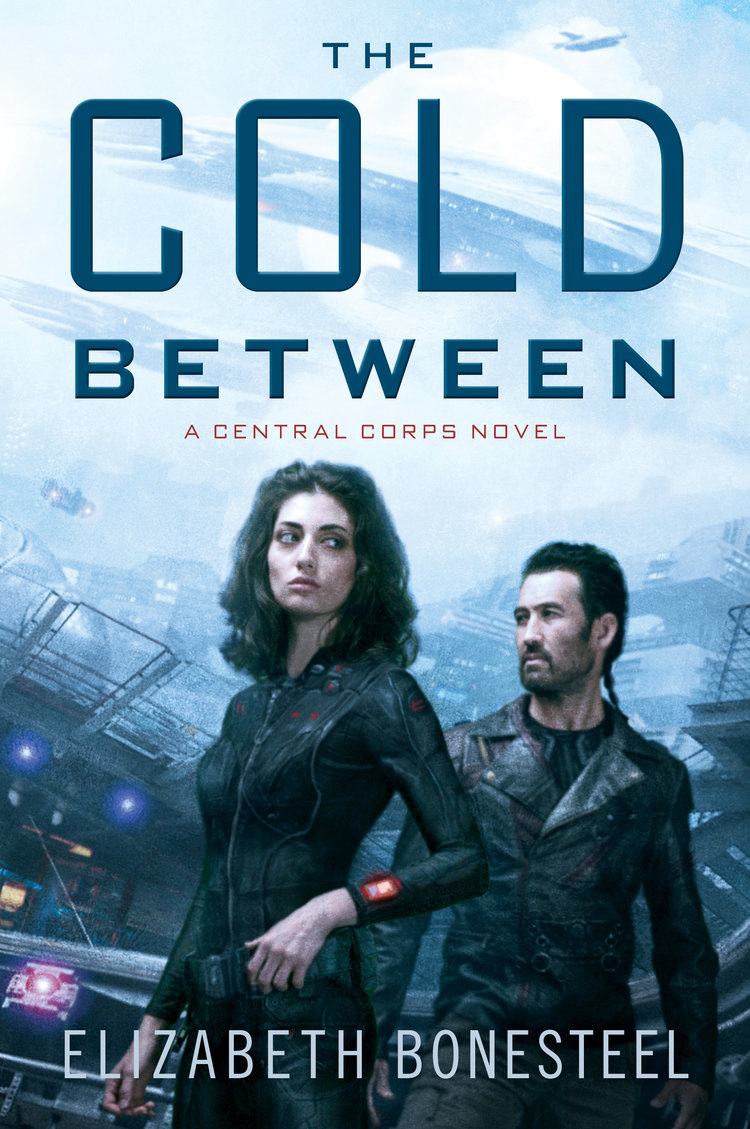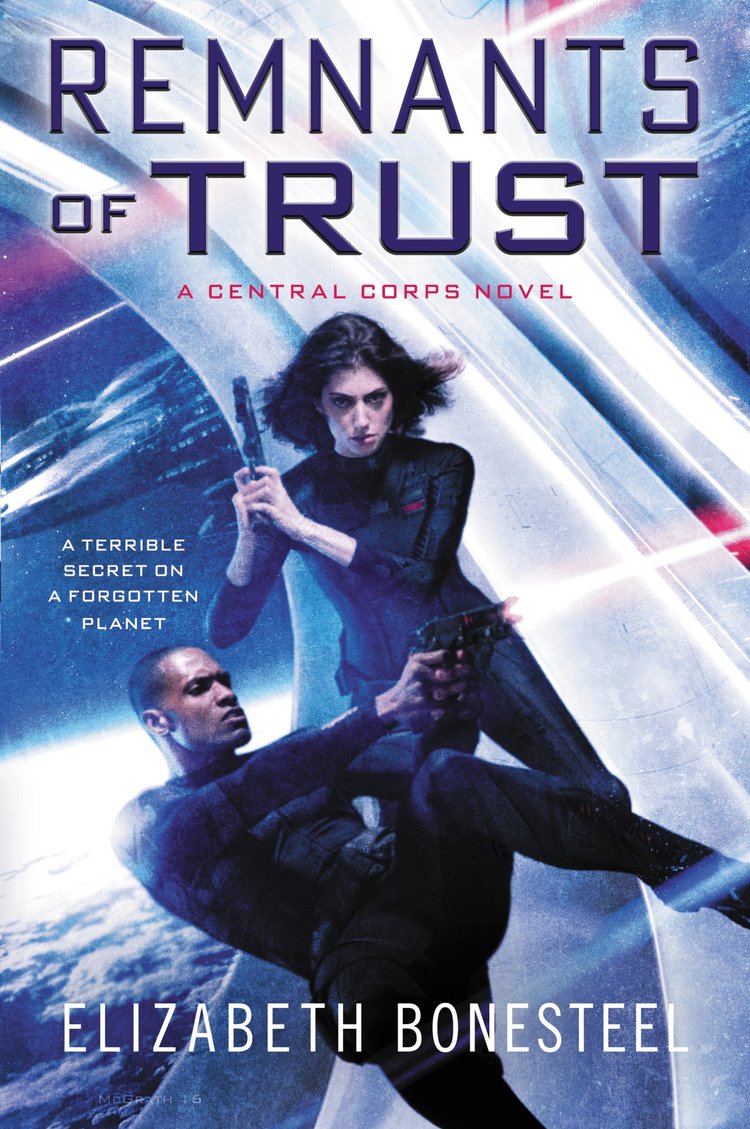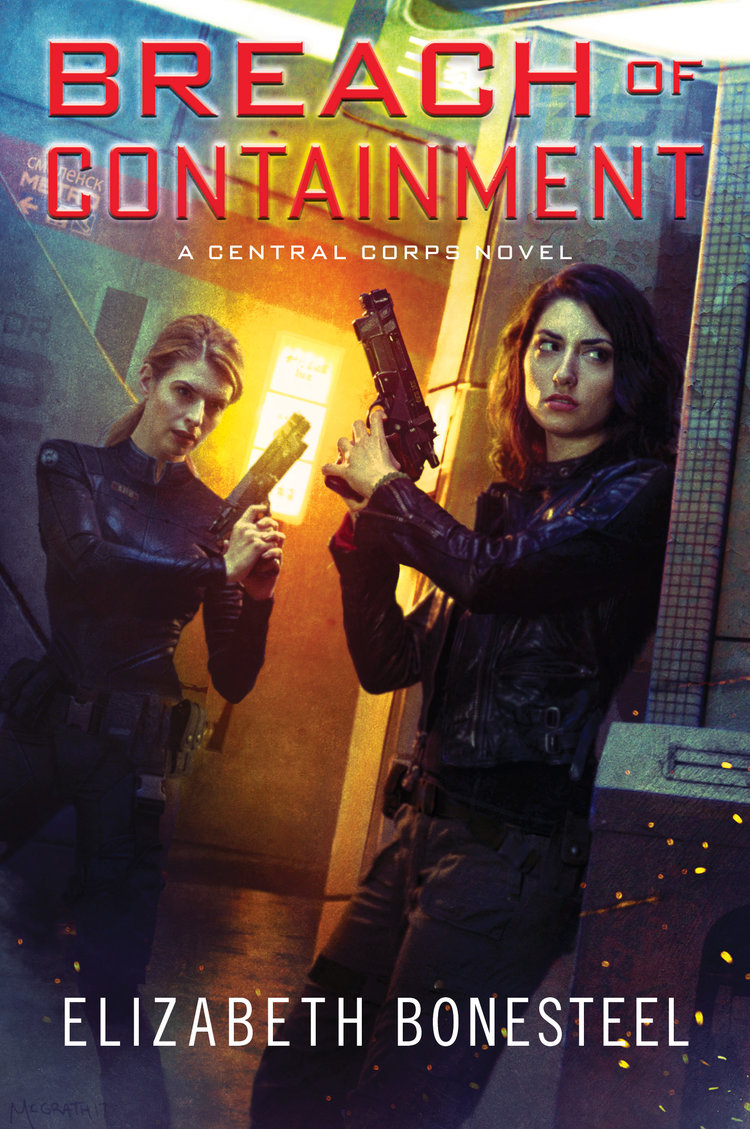Elizabeth Bonesteel’s Central Corps trilogy is a refreshing space opera
An underrated SF trilogy

The last couple of years, I've really fallen in love with Elizabeth Bonesteel's Central Corps trilogy: The Cold Between, Remnants of Trust, and Breach of Containment. The trilogy as a whole have become some of my favorite reads in recent years, full of well-drawn characters and a world that works in complicated and plausible ways.
Spoilers for the Central Corps trilogy follow.
Bonesteel sets up an intriguing world: humanity has spread throughout the galaxy, governed by Central Gov and an interstellar navy, the Central Corps. They act as general peacekeepers across the cosmos, and keep a wary eye on the PSI, a rival, space-faring society that split away eons ago.

The series kicks off with The Cold Between as a Corps ship called the Phoenix blows up over a colonial world named Volhynia. A quarter of a century later, another Corps ship, the Galileo, is stationed at Volhynia. Danny Lancaster, one of its crew members, is found murdered, and suspicion immediately falls on a former PSI captain named Treiko Zajec. There’s one problem, however: he was in bed with the Galileo’s chief engineer, Elana Shaw, who realizes that someone is desperately trying to deflect attention from the real culprits by pinning the blame on Lancaster. As Shaw works to help clear Zajec’s name, she discovers that her crewmate’s death is linked to the unsolved destruction of the Phoenix 25 years ago, which claimed the live of the mother of the Galileo’s captain, Greg Foster.
In Remnants of Trust, Shaw and the Galileo is back, and now reassigned to the Third Sector, where they're punished for what happened in the prior book. They receive a distress call from their sister ship, the Exeter, which has been sabotaged, along with a nearby PSI ship. The events link back to the book's prologue, where the team visits a devastated colony, and there seems to be some sort of coverup going on.

Finally, in Breach of Containment, Shaw has abruptly left the Central Corps, leaving Greg Foster bewildered. This book feels as though it's the strongest of of the trilogy, following Shaw and Foster as they're drawn into yet another conspiracy: this time on a distant colonial moon, where some scavengers have discovered a strange piece of technology, and as a major corporation, Ellis Systems, begins making moves to take over large swaths of space.
While reading the series, I couldn’t help but think of the Central Corps as an organization that essentially fills the same role as the Federation in Star Trek: a quasi-military organization that essentially fills a logistical gap in Bonesteel’s world. They help with humanitarian or security missions, and generally seem to be there to aid colonies as needed.
But where the Federation existed in a idealistic, utopian world, Bonesteel fits the same sort of group into a world that feels a bit more plausible. Humanity hasn’t moved past most of its core issues around racism and tribalism, and many view the Central Corps as a body that’s untrustworthy and rife with corruption.

But while a plausible and interesting world makes for good setting, it’s useless without interesting characters to play out the story. Fortunately, Bonesteel has this covered: Shaw, Foster, and the handful of ancillary background characters that pop up book to book. Bonesteel's main focus is on Shaw and Foster's relationship: they're friends, but over the course of the series, it's clear that there's more of a relationship growing between them. It's not straight forward or clean: the two have their issues and it takes them a while to find common ground, but it's the foundation of the entire series, and Bonesteel handles it expertly.
These books aren't simple affairs: they're dense, complicated novels that took me a while to get through — this is why I'm reviewing it now, rather than last fall, when the last book came out. While they're packed reads, they're richly layered with characters, subplots and internal politics, mirroring our own, complicated world. They make for a nice counterpoint to some of the other classic space opera classics, which always feel like they're just barely scratching the surface on how the worlds actually operate.